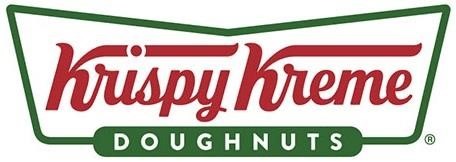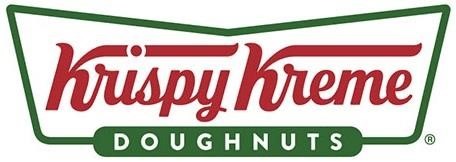

Nutrition facts and Weight Watchers points for 1.5% Reduced-Fat Milk from Krispy Kreme.
Calories
There are 120 calories in 1.5% Reduced-Fat Milk.
Nutrition Facts
| Serving Size | 1 cup | |
| Calories | 120 | |
| Calories From Fat | 36 | |
| Amount Per Serving | % Daily Value* | |
| Total Fat | 4g | 6% |
| Saturated Fat | 3g | 15% |
| Trans Fat | 0g | |
| Cholesterol | 15mg | 5% |
| Sodium | 130mg | 5% |
| Total Carbohydrates | 12g | 4% |
| Dietary Fiber | 0g | 0% |
| Sugars | 12g | |
| Protein | 8g | 16% |
| Vitamin A | 150% | |
| Vitamin C | 0% | |
| Calcium | 0% | |
| Iron | 0% | |
*All percent daily value figures are based on a 2,000 calorie diet.
Nutritional information source: Krispy Kreme
Allergens
We are working on getting the allergen information for this item.
Ingredients
We are working on getting the ingredients for this item.
Additional Information
Krispy Kreme, a well-known brand known for its delicious doughnuts, also offers a line of beverages, including its 1.5% fat-reduced milk. This article examines the features, benefits, and drawbacks of this product, providing valuable insight for health-conscious consumers.
Product Features
Krispy Kreme 1.5% Reduced-Fat Milk is a beverage option that appeals to individuals seeking a lighter alternative to full-fat milk. Here are some of the product’s notable features:
- Reduced fat content: With only 1.5% fat, this milk is lower in fat compared to whole milk, making it an appropriate choice for those looking to manage their fat intake.
- High in protein: Each serving of Krispy Kreme 1.5% Low Fat Milk contains 8 grams of protein. Protein is essential for several bodily functions, including muscle growth and repair.
- Moderate calories: This milk provides 120 calories per serving, which can fit into a balanced diet and help maintain calorie control.
- Essential nutrients: Krispy Kreme 1.5% Reduced Fat Milk is a source of essential nutrients such as calcium, which contributes to bone health, and vitamin A, which supports vision and immune function.
Benefits:
Incorporating Krispy Kreme 1.5% Reduced Fat Milk into your diet can offer several benefits:
- Lower fat intake: Choosing reduced-fat milk over full-fat options can help reduce saturated fat consumption, which has been linked to an increased risk of heart disease.
- Weight management: With its moderate caloric content, this milk can be part of a calorie-controlled diet, supporting weight management goals.
- Protein Source: Milk’s protein content provides a source of amino acids necessary for building and repairing tissues, making it beneficial for individuals seeking to support muscle health.
- Nutrient Contributor: Krispy Kreme 1.5% Low Fat Milk contains essential nutrients such as calcium and vitamin A, which contribute to overall health and well-being.
Downside:
While Krispy Kreme’s 1.5% Fat-Reduced Milk offers several benefits, it’s important to consider the following drawbacks:
- Taste and texture: Low-fat milk may have a slightly different taste and texture than whole milk due to the lower fat content. Some people may find the taste less creamy or rich.
- Personal preferences: Some people prefer the taste and mouthfeel of full-fat milk or other milk alternatives and may not find the reduced-fat option as satisfying.
- Allergies and Intolerances: It’s important to note that Krispy Kreme 1.5% reduced-fat milk contains dairy, which may be a concern for those with lactose intolerance or dairy allergies.
- Individual dietary needs: While this milk can be part of a balanced diet, it’s important to consider individual dietary needs and preferences. For example, individuals on special diets, such as vegan or plant-based diets, may choose non-dairy alternatives.
Conclusion
Krispy Kreme 1.5% Low Fat Milk is a beverage option that provides a lower fat alternative to whole milk. With its protein content and essential nutrients, it offers several benefits to individuals seeking a healthier beverage choice. However, personal preferences, taste variations and individual dietary needs should be considered when choosing the most appropriate milk option. By making informed choices based on individual goals and preferences, consumers can enjoy a varied and balanced diet that aligns with their health and wellness goals.
Questions and Answers
Is Krispy Kreme 1.5% fat reduced milk suitable for people with lactose intolerance?
Yes, Krispy Kreme’s 1.5% Reduced-Fat Milk contains milk, which may not be suitable for those with lactose intolerance. Those with lactose intolerance can explore lactose-free milk options or non-dairy alternatives such as almond milk, soy milk or oat milk.
Can Krispy Kreme’s 1.5% fat reduced milk be consumed by individuals on a vegan diet?
No, Krispy Kreme’s 1.5% Reduced-Fat Milk contains dairy and is not suitable for individuals on a strict vegan diet. However, there are several non-dairy milk alternatives that are plant-based and suitable for vegans, such as almond milk, soy milk, coconut milk, and others.
How does Krispy Kreme’s 1.5% fat reduced milk compare to skim milk?
Krispy Kreme’s 1.5% Reduced Fat Milk has a slightly higher fat content than skim milk. Skim milk typically contains less than 0.5% fat, while the 1.5% reduced-fat milk contains 1.5% fat. If you are specifically looking for a lower fat option, skim milk may be a better choice.
Can Krispy Kreme 1.5% Low Fat Milk be used in coffee or tea?
Yes, Krispy Kreme 1.5% Low Fat Milk can be used as a dairy option in coffee or tea. It can be a lighter and lower-fat alternative to whole milk or cream. However, personal taste preferences may vary, so you may want to try it to see if you enjoy the flavor in your hot beverages.
How does Krispy Kreme 1.5% fat reduced milk compare to whole milk in terms of nutritional value?
Krispy Kreme’s 1.5% Reduced-Fat Milk has a lower fat content than whole milk. Whole milk typically contains about 3-3.5% fat, while the 1.5% reduced-fat milk contains only 1.5% fat. The reduced-fat milk option can be beneficial for people who want to reduce their fat intake while still getting the nutritional benefits of milk, such as protein and essential nutrients.